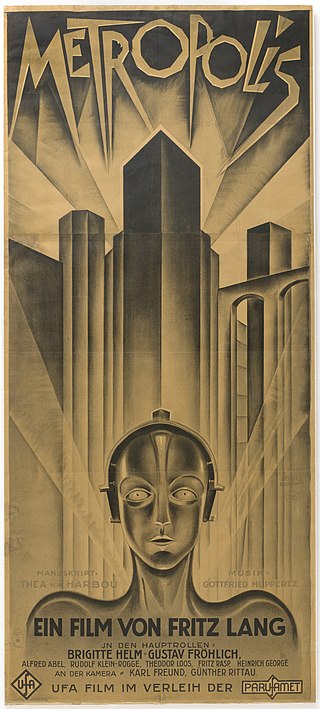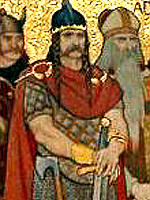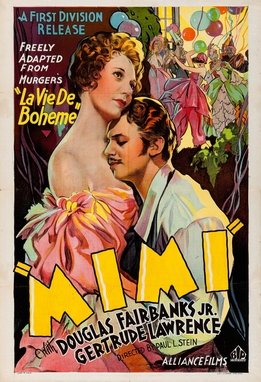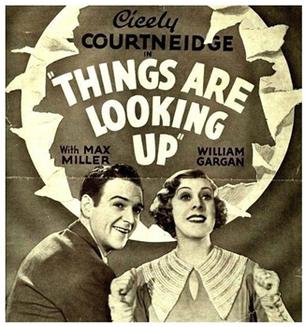
A documentary film or documentary is a non-fictional motion picture intended to "document reality, primarily for instruction, education or maintaining a historical record". Bill Nichols has characterized the documentary in terms of "a filmmaking practice, a cinematic tradition, and mode of audience reception [that remains] a practice without clear boundaries".

Metropolis is a 1927 German expressionist science-fiction silent film directed by Fritz Lang and written by Thea von Harbou in collaboration with Lang from von Harbou's 1925 novel of the same name. It stars Gustav Fröhlich, Alfred Abel, Rudolf Klein-Rogge, and Brigitte Helm. Erich Pommer produced it in the Babelsberg Studios for Universum Film A.G. (UFA). Metropolis is regarded as a pioneering science-fiction film, being among the first feature-length ones of that genre. Filming took place over 17 months in 1925–26 at a cost of more than five million Reichsmarks, or the equivalent of about €21 million.
The following is an overview of 1927 in film, including significant events, a list of films released and notable births and deaths.

Richard Horatio Edgar Wallace was a British writer of sensational detective, gangster, adventure and sci-fi novels, plays and stories.

Kenneth is a given name of Gaelic origin. The name is an Anglicised form of two entirely different Gaelic personal names: Cainnech and Cináed. The modern Gaelic form of Cainnech is Coinneach; the name was derived from a byname meaning "handsome", "comely". A short form of Kenneth is Ken.

The Cinematograph Films Act 1927 was an act of the UK Parliament designed to stimulate the declining British film industry. It received royal assent on 22 December 1927 and came into force on 1 April 1928.

James Henry Kinmel Sangster was a British screenwriter and director, most famous for his work on the initial horror films made by the British company Hammer Films, including The Curse of Frankenstein (1957) and Dracula (1958).
Pathé News was a producer of newsreels and documentaries from 1910 to 1970 in the United Kingdom. Its founder, Charles Pathé, was a pioneer of moving pictures in the silent era. The Pathé News archive is known today as British Pathé. Its collection of news film and movies is fully digitised and available online.

Universal Newsreel was a series of 7- to 10-minute newsreels that were released twice a week between 1929 and 1967 by Universal Studios. A Universal publicity official, Sam B. Jacobson, was involved in originating and producing the newsreels. Nearly all of them were filmed in black-and-white, and many were narrated by Ed Herlihy. From January 1919 to July 1929, Universal released International Newsreel, produced by Hearst's International News Service—this series later became Hearst Metrotone News released first by Fox Film Corporation 1929–1934 and then by Metro-Goldwyn-Mayer beginning in 1934.

The BFI National Archive is a department of the British Film Institute, and one of the largest film archives in the world. It was founded as the National Film Library in 1935; its first curator was Ernest Lindgren. In 1955, its name became the National Film Archive, and, in 1992, the National Film and Television Archive. It was renamed BFI National Archive in 2006.

Moscow Nights is a 1935 British drama film directed by Anthony Asquith and starring Laurence Olivier, Penelope Dudley-Ward and Harry Baur. The screenplay concerns a wounded officer who falls in love with his nurse.

The Terror is a 1938 British crime film directed by Richard Bird and starring Wilfrid Lawson, Linden Travers and Bernard Lee. It was based on the 1927 play The Terror by Edgar Wallace. The play had previously been adapted as the American film The Terror(1928).
Julius Hagen (1884–1940) was a German-born British film producer who produced more than a hundred films in Britain.

Take My Tip is a 1937 British musical comedy film directed by Herbert Mason, produced by Michael Balcon and starring Jack Hulbert, Cicely Courtneidge, Harold Huth and Frank Cellier.

The Outsider is a 1931 British drama film directed by Harry Lachman and starring Joan Barry, Harold Huth and Norman McKinnel. The screenplay concerns an unorthodox osteopath who cures one of his patients, the daughter of a fellow Doctor. It was made at Elstree Studios and based on the 1923 play of the same title by Dorothy Brandon, previously made into an American silent film in 1926. The film's sets were designed by Wilfred Arnold.
The Flag Lieutenant is a 1926 British war film directed by Maurice Elvey and starring Henry Edwards, Lilian Oldland and Dorothy Seacombe. It is based on the play The Flag Lieutenant by W.P. Drury. Its sets were designed by the art director Andrew Mazzei. The film proved to be one of the hits of the year at the British box office.

Mimi is a 1935 British romance film directed by Paul L. Stein and starring Douglas Fairbanks Jr., Gertrude Lawrence and Diana Napier. Set in nineteenth century Paris, the screenplay concerns a composer who becomes inspired by a young woman he encounters. The film is based on the 1851 novel La Vie de Bohème by Henri Murger. The score includes arrangements of Giacomo Puccini's music from the opera La bohème, arranged by George H. Clutsam.

Things Are Looking Up is a 1935 British musical comedy film directed by Albert de Courville, produced by Michael Balcon for Gaumont British and starring Cicely Courtneidge, Max Miller and William Gargan. It was made at Islington Studios by British Gaumont, an affiliate of Gainsborough Pictures. The film's sets were designed by Alex Vetchinsky. The film was distributed by Gaumont British Distributors.
What a Man! is a 1938 British comedy film directed by Edmond T. Gréville and starring Sydney Howard, Vera Pearce and John Singer. It was made at Beaconsfield Studios in September.














